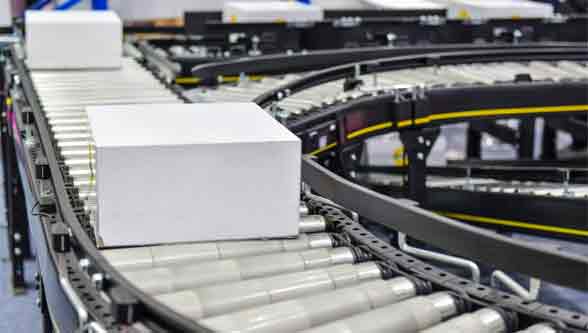Conveyor systems are one of the most commonly used equipment in almost every industry. They help in achieving different kinds of functions and by automating them you can get the added advantages of flexibility and safe practices. Besides, they also help in enhancing the performance and cost-effectiveness of your processes.
Conveyors have been used to handle different kinds and quantities of materials since the early 20th century. It won’t be an exaggeration to call the conveyor systems the backbone of material handling facilities, which comprise transport, storage and control of goods through various processes of manufacturing and distribution. Conveyors allow an uninterrupted movement of materials, unlike other material handling systems such as forklifts, which require constant back and forth movement from starting to the end point, thus causing a disruption to the steady flow of compounds.
3 Reasons Conveyors Are Critical in Automation Systems
Conveyor systems have numerous uses and functions that can be applied in various industrial sectors for different operations, ranging from production to packaging and even supply. Let us look at three reasons which explain their importance in almost every automation system.
Reduces Manual Waste
Certain tasks in a process, such as moving extremely heavy objects in a production line, can be done without manual labor. In fact, trying to achieve such tasks using human labor results in manual waste and you won’t add any value to the production process. Moreover, the chances of injuries and accidents may rise, thus risking the employees’ safety in the plant. You can reduce all of this by automating such tasks.
When you introduce conveyors in a production line, they will not only speed up the processes but also make the plant more productive. An automated conveyor solution will free up the employees from unproductive manual work and they can spend that time working on critical business development tasks. Your employees are the crux of your organization — make sure that their efforts are put to good use rather than wasting them.
Provides Flexibility
Flexibility is a key element for achieving lean operations. If you feel that conveyors are immobile and inflexible, think again. Modular conveyors help in achieving the flexibility that is required for various operations. Moreover, they can be set up easily in the field also.
Modular conveyors allow you to customize the conveyor system for your operations. Instead of opting for a conveyor system that you cannot move, invest in one that is flexible, to better serve your goals.
Even if you use fixed systems, you can gain flexibility by configuring and planning correctly. When you do so, the conveyors can transport materials from a variety of storage and production areas to their end destination. You can get this flexibility from having a conveyor system that can provide straight-through lines. Such a system can also accommodate a variety of products and destinations within a single production line.
Enhance Quality Control
When you implement automated systems, you can eliminate scrap and enhance quality control. Moreover, automation also helps in detecting critical issues within the product, such as bad parts, unwanted metal, etc. Conveyor solutions help in orienting products for the next assembly or operation, thus ensuring that no time is wasted for repositioning of any product. An automated solution also helps in creating more throughput and ensures improved customer satisfaction because of high quality products.
There are a number of technologies which you can implement in your manufacturing and/or production unit. Among them, conveyors are sure to be a clear winner. Before automating warehouses, it is imperative that you diligently assess your requirements or consult an industry expert so as to find the most ideal conveyor type for your processes and applications.
Author Bio:
Kevin Hill is the content editor and online marketing manager at Quality Scales Unlimited. Always an early adopter and fast learner; Kevin combines his technical knowledge with content marketing in creative ways to give Quality Scales Unlimited a competitive edge.



